Along with increasing public awareness to behave and consume halal products, the demand for halal products has experienced very rapid development, both at the national and global levels.
The huge potential of the halal industry has become one of the main engines to drive Indonesia’s national economic growth, as stated by the Secretariat of Vice President, quoted by MINA on Sunday.
In order to realize the Government’s target to make Indonesia the world’s halal center by 2024, the Kurnaen Sumadiharga Science Area of the National Research and Innovation Agency (BRIN) is a National Maritime-Based Halal Product Research and Innovation Facility in Teluk Kodek hamlet, Malacca Village, Pemenang District, District North Lombok was inaugurated on Thursday.
The Kurnaen Sumadiharga Science Area was inaugurated by the Indonesian Vice President (Wapres) KH. Ma’ruf Amin.
Also Read: Gaza Cries Out, the World Stays Silent: A Wounded Humanity
Kyai Ma’ruf Amin said that opportunities for the development of the halal industry must be optimized through the synergy and collaboration of all stakeholders, including BRIN to develop technology and innovation, in order to improve Indonesian halal products so that they have high competitiveness at the global level.
“Innovation and research in the halal industry developed by BRIN is expected to optimize Indonesia’s wealth, including maritime resources, and produce findings of halal materials that will substitute imported materials,” said the Vice President when inaugurating the area.
Furthermore, the Vice President said that currently Indonesia has many facilities and infrastructure to develop halal products, such as research centers in the field of halal science, centers for Islamic economics and halal science studies, as well as researchers in the economic sector of Islamic finance and halal products.
“The role of BRIN is very vital, especially in developing research and innovation related to the halal industry in various halal research facilities owned by BRIN, so that it becomes a reference laboratory for Indonesian halal research,” he said.
Also Read: Indo Defence Expo and Forum; Sharing Responsibility of Humankind and Environment
Not only that, the Vice President but also hopes that the research results and utilization of BRIN technology can be used by MSMEs engaged in the halal sector.
“[This] is in order to raise our MSME class, as well as strengthen cooperation with MSMEs which have a very important role for the national economy,” he explained.
Furthermore, regarding the development of research and innovation to strengthen the halal industry, according to the Vice President, there are at least three things that can be pushed together by all related parties.
“First, innovation and research based on the unique wealth that Indonesia has. Second, the synergy of technology research and development activities with industrial needs. And third, new sources of funding for research and innovation from the Islamic finance sector,” he said.
Also Read: Safiya Saeed: From Somali Migrant to First Hijab-Wearing Mayor of Sheffield
Thus, said the Vice President, the vision of Golden Indonesia 2045 to become a maritime-based developed country, as well as Indonesia’s vision to become a center for world halal producers have harmony.
“With innovation, I hope that new halal products based on superior maritime resources will continue to emerge, which will provide added value to national halal products,” he said.
Maritime-Based Halal Product Development Area
The Kurnaen Sumardiharga Science Area is one of the science areas under the management of BRIN. This area is also the center of activities for the Marine and Land Bioindustry Research Center (PRBILD). Historically, this area of about 7 hectares was originally a marine research station under the Indonesian Institute of Sciences (LIPI) which was founded in 1997, then changed to the Technical Implementation Unit (UPT).
Also Read: Why Food Safety is Essential During Hajj Services?
This facility owned by BRIN is one of the real efforts in providing research facilities and halal product innovation. BRIN has several facilities for research on the detection of halal products located in Cibinong, Serpong, and Playen-Gunung Kidul.
In his press release, Head of BRIN Laksana Tri Handoko said, the Kurnaen Sumadiharga Science Area has been equipped with modern facilities and equipment, so that researchers and product developers can carry out joint research and innovation in developing maritime-based halal products.
“The current facilities were built through Coremap program funding from the World Bank for 2019-2022, to replace facilities damaged by the 2018 earthquake,” said Handoko.
Furthermore, Handoko explained, this facility supports various researches that produce raw materials for halal products in the form of marine biota in a good and sustainable manner.
Also Read: Indonesia Sign Language Mushaf Qur’an; A Sustainable Gift in Celebrating Pancasila Birthday
“Research and innovation facilities in this field are expected to improve the quality of raw materials for halal products and develop new halal products that are innovative and have high added value,” he said.
The main facilities in the Kurnaen Sumadiharga Science Area include: 1) Marine biota research facilities in the form of wet laboratories, floating net cages and longlines; 2) Halal product development facilities and analysis laboratories equipped with modern characterization equipment, including HPLC, GC, multimode microplate reader, PCR, texture analyzer, chromameter, and various other tools; and 3) Supporting facilities in the form of co-working space, auditorium, meeting room, and mess.
“Existing facilities are open platform facilities which are very important for halal industry players in Indonesia to improve the quality of halal products, as well as create innovative halal and sustainable products. The existing research and innovation infrastructure can be accessed openly through the BRIN Science E-Services portal, through various available collaboration schemes,” added Handoko.
Moreover, emphasized Handoko, strategically this facility is located in the province of West Nusa Tenggara, which is currently being developed into one of the halal tourism centers in Indonesia.
Also Read: Leila Khaled, The Icon of Palestinian Women’s Resistance
“This is expected to help Indonesia in driving the halal industry ecosystem and increasing the competitiveness of halal products in the global market,” he concluded. (T/RE1)
Mi’raj News Agency (MINA)
Also Read: The Twilight of the Zionist Israeli State






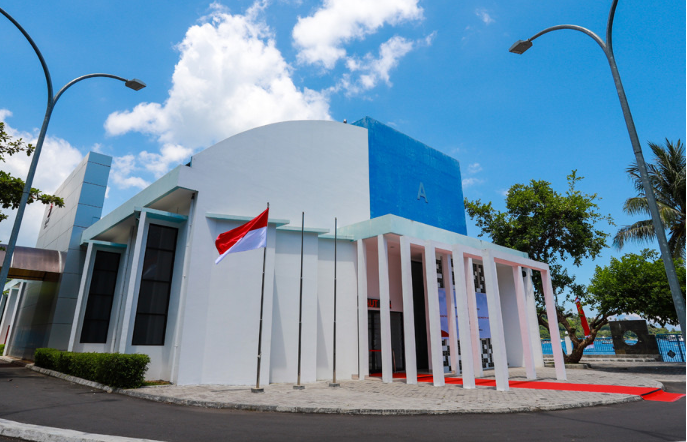


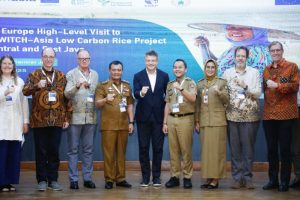

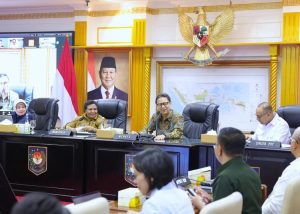





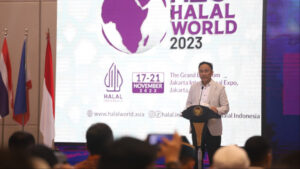

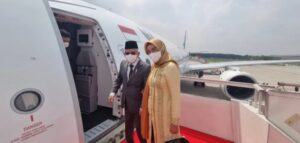
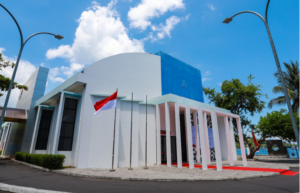
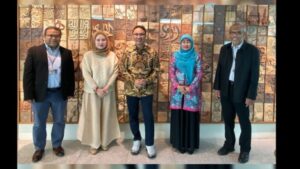






 Mina Indonesia
Mina Indonesia Mina Arabic
Mina Arabic